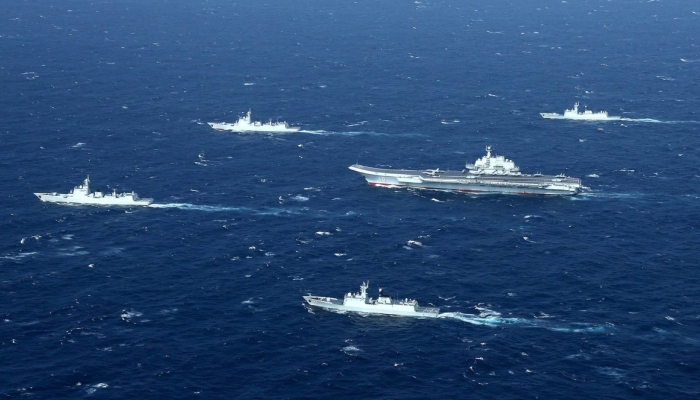China draws global fire for water-cannoning Philippine boat in South-China Sea
For years, the South China Sea has remained a flashpoint between China and the Philippines
August 07, 2023

China is facing a mounting global backlash following a recent incident in which one of its coast guard vessels water-cannoned a Philippine boat in the South China Sea, CNN reported.
Analysts believe that this incident has further intensified an already tense situation, possibly accelerating plans by the United States and its allies to conduct joint patrols in the region.
Video footage captured the moment a large Chinese Coast Guard ship used a water cannon against a smaller Philippine vessel that was attempting to deliver supplies to Philippine marines stationed on Second Thomas Shoal, an area claimed by both nations within the South China Sea.
Images from the Philippine Coast Guard underscored the risky manoeuvres of the Chinese ship in close proximity to the accompanying Philippine Coast Guard vessels.
The Philippine Coast Guard issued a strong condemnation of the "dangerous maneuvers and illegal use of water cannons" by the Chinese Coast Guard.
Promptly, the United States, a key ally of the Philippines, condemned China's actions and reaffirmed its commitment to the mutual defense treaty with the Philippines.
Aligned with the US, Australia, Japan, and Germany joined their voices in criticizing China's actions, deeming them "dangerous" and "destabilizing." The Canadian Embassy in Manila expressed unequivocal condemnation of the Chinese Coast Guard's provocative conduct.
In response to the incident, the Philippine President's office lodged a formal complaint accompanied by evidence, delivering it to the Chinese ambassador in Manila.
Simultaneously, the Philippine Foreign Ministry and armed forces held a joint press conference, denouncing China's "dangerous and illegal practice" of using water cannons. They emphasized the violation of humanitarian and international law, which jeopardized the lives of Filipino crew members.
For years, the South China Sea has remained a flashpoint between China and the Philippines. China's sweeping claims over most of the sea, even areas far from its mainland, have been a point of contention with neighboring nations.
Analysts underscored that this incident marks a worrisome escalation from past confrontations, potentially plunging into heightened brinkmanship diplomacy.
Nonetheless, China seems unwavering in its territorial assertions, asserting that its actions were justified and aligned with its law enforcement activities.
Expectations persist that China will continue its "gray zone" tactics—actions falling short of triggering mutual defense commitments—necessitating strategic responses from affected countries.
Experts advocate for a multifaceted approach combining diplomatic efforts and tangible actions to counter China's maritime aggression.
Joint patrols involving the US, the Philippines, Australia, and Japan in the South China Sea are under consideration as a potential response to China's actions.
As events unfold, the determination of the Philippines and its allies to uphold territorial claims remains steadfast. In this context, effective responses from the United States are viewed as pivotal in preserving the regional status quo.









